Highlights 2019
April
Inside view
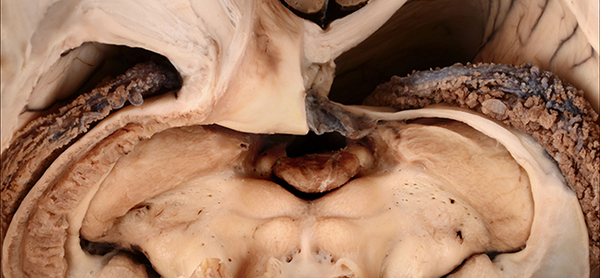
An unusual view of the human brain wins the “Object of study” category of the SNSF Scientific Image Competition. The picture was taken by Kevin Akeret, doctoral student at University Hospital Zurich. The jury selects three winning images and one video from 457 entries. In addition, they award eleven distinctions. A selection is presented at the Biel/Bienne Festival of Photography. On the opening night, videos of the previous competitions are set to music.
June
Equality now
Employees of the SNSF join the national women’s strike on the Bundesplatz in Bern. “A lack of gender equality damages science and slows down social and economic innovation,” says director Angelika Kalt. The SNSF calls on politicians to make gender equality a reality. Among other things, conditions for working parents need to be improved.
September
The algorithm as poet
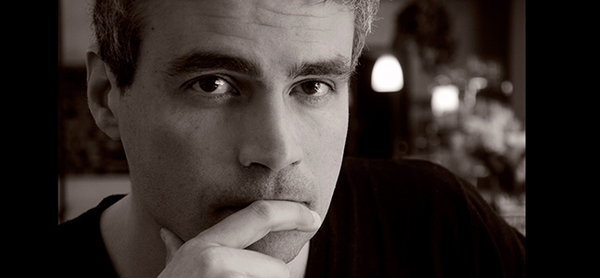
Antonio Rodriguez wins the Optimus Agora Prize for his exhibition “Digital Lyric”. Among other features, he allows the visitors to test a device that writes poems using artificial intelligence. Depending on the instructions, the poems contain differing shares of love, joy and sadness. “I want to allay certain fears to do with digitalisation, but also with poetry,” says Rodriguez, professor of modern French literature at the University of Lausanne.
September
Looking into the past
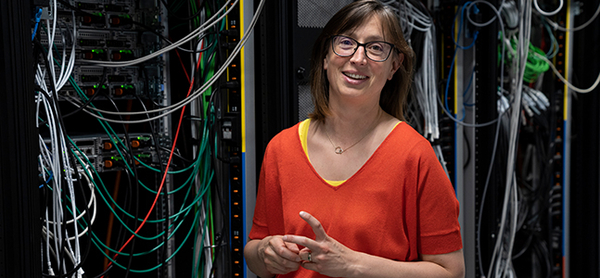
13 billion years ago, the universe was reionising: the electrons and protons of hydrogen atoms separated. Using data from the Hubble Space Telescope, Anne Verhamme showed that the radiation of galaxies was the likely trigger of the reionisation. For this work, the assistant professor for astronomy at the University of Geneva is awarded the Marie Heim-Vögtlin Prize by the SNSF.
October
With public money
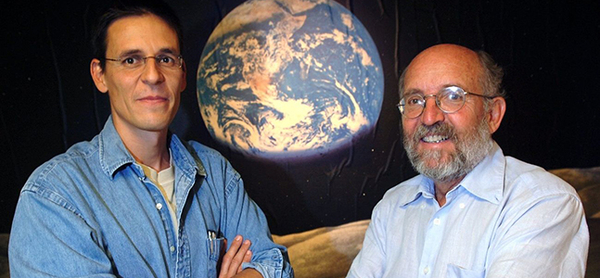
Michel Mayor and Didier Queloz receive the Nobel Prize in physics for their basic research on exoplanets. In an interview, Michel Mayor thanks the SNSF and the University of Geneva: “They funded our work on exoplanets before it enjoyed the reputation that it does today.” Matthias Egger, President of the Research Council, says: “This prize is an acknowledgement that basic science needs to be funded with public money.”
November
Novel combination
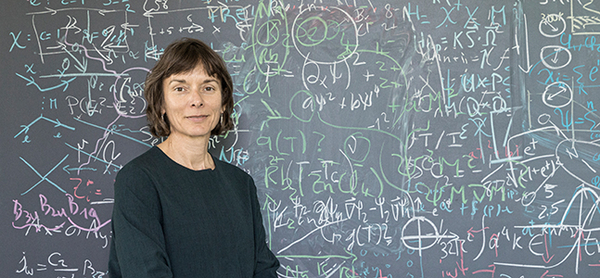
Nicola Spaldin, ETH professor of materials theory, receives the Swiss Science Prize Marcel Benoist for her ground-breaking research into multiferroics. These novel substances react both to magnetic and electric fields. An example is bismuth ferrite, which consists of bismuth, iron and oxygen. Her work lays the foundation for ultrafast processors and minute data storage devices.
November
Real achievements
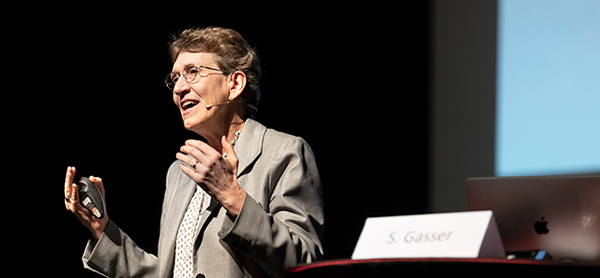
Susan Gasser steps down as president of the SNSF’s Commission on Gender Equality. Between 2014 and 2019, she contributed significantly to strengthening the SNSF’s commitment to gender equality. Gasser, director of the Friedrich Miescher Institute in Basel, started important debates and was a key player in creating the new funding scheme PRIMA. Her successor Michèle Amacker, co-director of the Centre for Gender Studies at the University of Bern, will take up her post in January 2021. Until then, Nicky Le Feuvre will preside over the commission ad interim.
November
Touring Switzerland
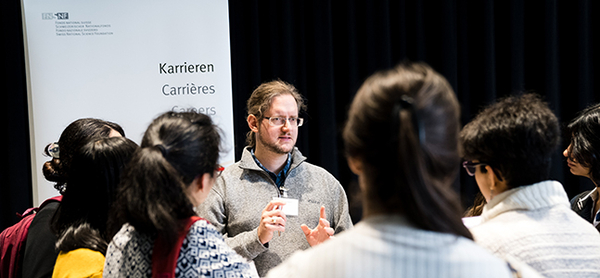
The SNSF visits each higher education institution every two years to present selected funding schemes and offer advice mainly to young researchers. In 2019, the tour of Switzerland included stops in Basel, Geneva, Lausanne, Lugano, Winterthur and Zurich. At several stops, the SNSF was joined by the Swiss Innovation agency Innosuisse. In total, over 500 researchers visited the events at nine universities and universities of applied sciences.
November
Empirical excellence
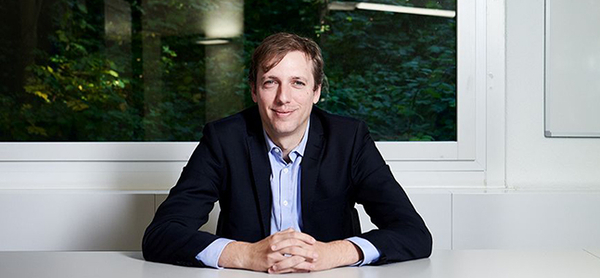
What is the effect of migration policy measures? Dominik Hangartner collects and analyses data to answer such questions. He is professor of political sciences at ETH Zurich and project leader at the National Centre of Competence in Research “On the move” of the SNSF. His empirical research is an outstanding example of what social sciences can achieve. He is awarded the National Latsis Prize for his work.
December
General election
Similar to the national parliament, the National Research Council of the SNSF needed to be re-elected in 2019. The Executive Committee of the Foundation Council elected around 100 leading researchers for the next four-year period of office. They are all working at universities or other research institutions. The Research Council decides which projects will be funded. It appoints various evaluation bodies that support its work.